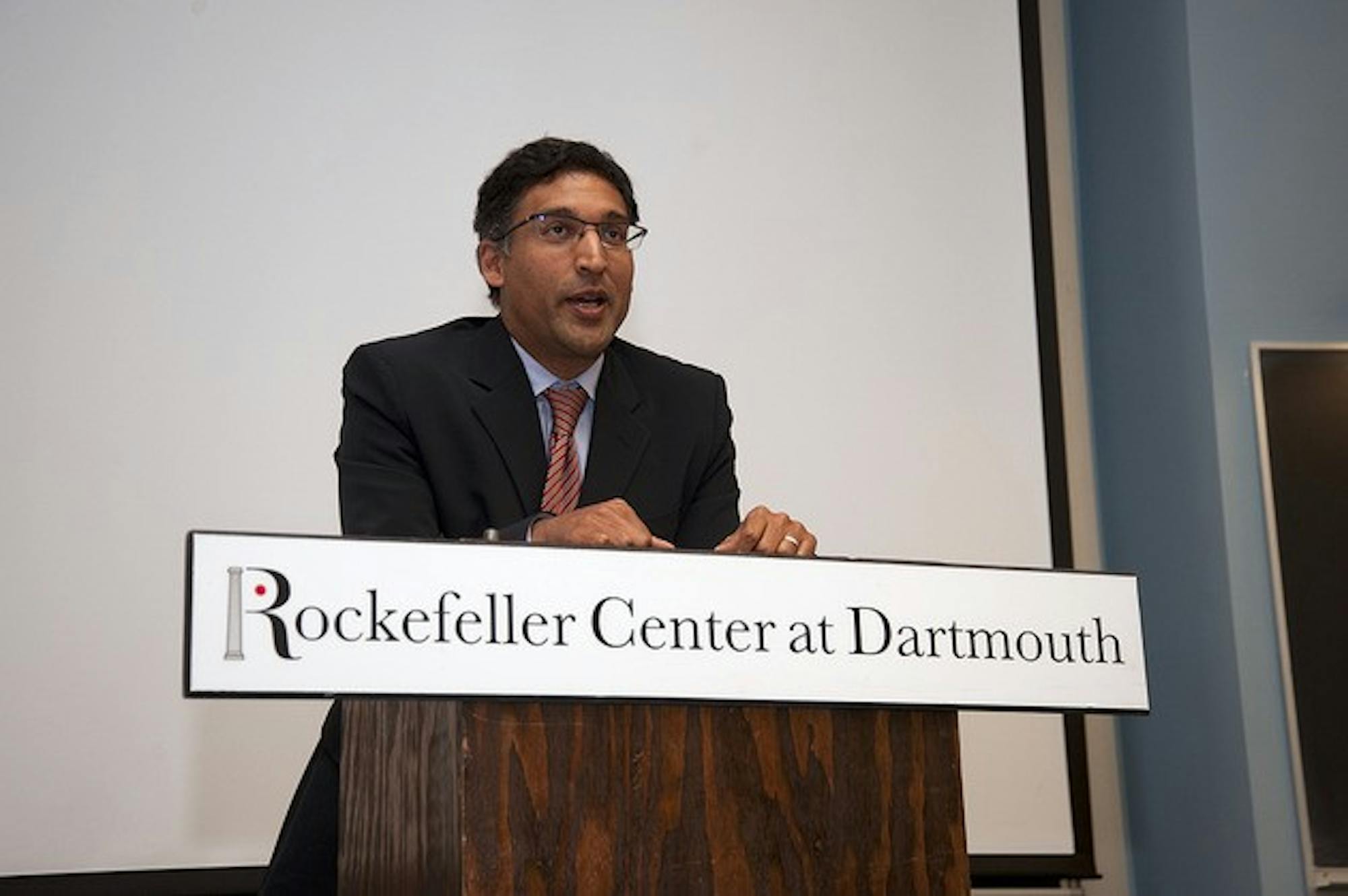"The Supreme Court looks more different than it ever has," Katyal said.
Although he included many anecdotes about the distinct new personalities on the Supreme Court, Katyal emphasized that jurisprudence has not changed overwhelmingly over the years. The ability of the Supreme Court to make an informed decision still stems from briefs and from the information from lawyers. Although a lawyer is thought to always "zealously advocate for their client to the fullest extent possible," Katyal said that it is also the solicitor general's duty to concede when an error has been made in government litigation. This "confession of error" is generally seen two to three times every Supreme Court term, according to Katyal.
Although lower court judges and prosecutors generally do not appreciate ruling reversals, the court aims to demonstrate its high regard for the truth, he said. "I do not mean to judge predecessors on their performances, but if there was something deeply problematic about how someone in the office had done their job, it's important to correct the record," Katyal said.
Katyal said he believes this power and duty of the solicitor general was abused during the Japanese-American internment of World War II. The outcomes of relevant cases, Hirabayashi v. United States and later Korematsu v. United States, were "extremely serious mistakes that resonate with all of us as Americans today," Katyal said.
After the Japanese attack on Pearl Harbor, U.S. President Franklin Roosevelt issued a military order establishing curfews for and mass detention of 120,000 Japanese-Americans based on nothing but their national origin, Katyal said.
Gordon Hirabayahshi, then a student at the University of Washington, turned himself in to the FBI after curfew violation. Although he defended himself in court, arguing that the internment was an unconstitutional order, he was convicted and sentenced to work camp prison in Arizona. His sentence was initially waived, but he opted to fulfill his time in prison, unwilling to compromise his principles.
"He tried to work with the system, but the system didn't want to work with him." Katyal said.
Although there was initial hesitation about defending the position on internment in the Department of Justice, then-Solicitor General Charles Fahy refused to back down on a case tied to war. A naval intelligence report stated that mass internment was unjustifiable and that only a tiny percentage of Japanese-Americans, who had already been identified by the government, posed any potential threat.
"The internment was magnified out of its true proportion largely because of the physical attributes of the people," Katyal said.
A memorandum was delivered to Fahy, and government civilian lawyers advised him that it could be considered suppression of evidence if he chose not to reveal the information in court.
"The solicitor general had a duty to advise the court of the memorandum," Katyal said.
In court, Fahy chose not to mention the naval report and instead introduced 15 pages about the physical and cultural characteristics of the Japanese that made them susceptible to treason and racial solidarity, according to Katyal.
"Courts depend on the lawyers of the government to tell them the truth," Katyal said. "But if the government is stacking the deck, then that becomes a real problem."
Hirabayashi died in January, and he was posthumously awarded the Presidential Medal of Freedom in April for his stand against Japanese-American internment.
"As we all think about who our heroes are, I think about that guy," Katyal said. "It would have been so easy for him to handle the situation without his principles."
Katyal said that candor to the court is the first priority of the solicitor general. Without truthfulness, the court is powerless to correct the government or the president, according to Katyal.
Economics professor and Rockefeller Center Director Andrew Samwick introduced Katyal as one of the "most qualified" people to speak about the issue. Katyal was appointed principle deputy solicitor general and then succeeded Justice Elena Kagan to become the first Asian-American acting solicitor general in 2010. Katyal was the lead counsel for the Supreme Court case Hamdan v. Rumsfeld, which dealt with the imprisonment of terror suspects at Guantanamo Bay. He specializes in national security, constitutional, criminal and intellectual property law and was named one of the top 50 litigators in the nation by The American Lawyer magazine.
At the College, Katyal majored in government modified with history, and he coached the Dartmouth debate team for a year after graduating before attending Yale Law School, Katyal said in an interview with The Dartmouth.
In addition to working as a partner at a private firm, he is also national security law professor at the Georgetown University Law Center.
"Teaching is the thing I love the most," Katyal said. "I was not a great student when I came here, but I had a set of teachers at Dartmouth who took me under their wing and really taught me."
Without his professors and debate coach, Katyal said he doubts he would be able to confidently stand up in court. He advised current students to take advantage of this "spectacular place."
Attendee Adrian Ferrari '14 said he enjoyed Katyal's discussion of the role of the solicitor general.
"Neal Katyal spoke about keeping integrity in the government in a way that really validated my own plans to go into public service," he said.
The lecture was sponsored by the Rockefeller Center.




